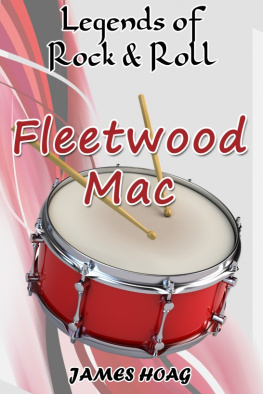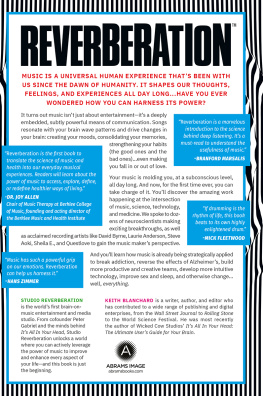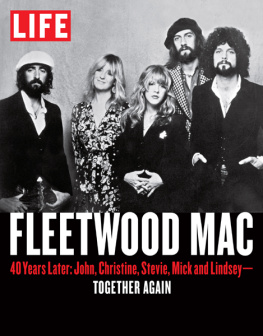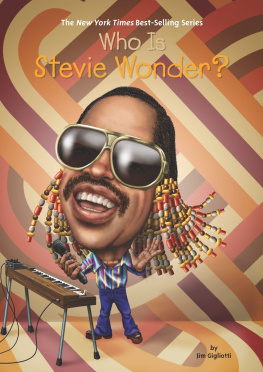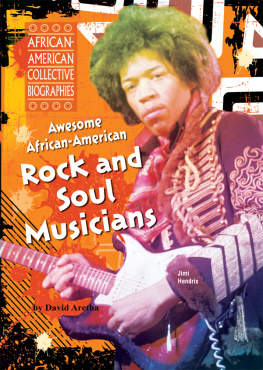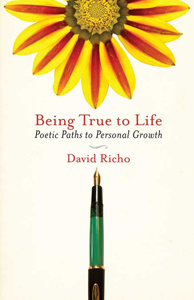Praise for Its Not Only Rock n Roll:
My friend David Crosby said it best Those moments just before you go to sleep are like the elves taking over the workshop. I like the elves to be present every moment in my life. There is so much to see, to experience and comment on. Creativity is all around you. Open up and let it rip.
Graham Nash
What most astounded me when I read Jennys book again (its been many years since the first time!) is what an interesting read it is, and as relevant today as it was twenty years ago.
It seems I had a very naive and joyful approach to writing and performing, a feeling I believe is still there in me somewhere. Over the years, after I retired, I gradually wrote less and less, whether that was lack of belief, motivation, or simply that I had nothing more in me to offer, I dont know.
Im seeking help to restore that childlike pleasure I found in creating music. Someone dear to me told me recently that the gift never goes away, it only needs to be woken up to get those juices active again.
So this I am doing, and rediscovering the joys of songwriting, because theres no doubt that when I write something good, its with some kind of stunned disbelief that it came from me. I would love to feel that again.
Christine McVie
The substance and revelations that are garnered in this book are second to none. Speaking for myself the journey Jenny took me on was an example of her innate skill to set a stage on which the story of the creative process can unfold.
So many of my fellow musician artists in this book have clearly allowed their inner hearts to show and thus have become part of the authors quest to bring the true magic of the creative to its rightful place a place that, if allowed, is for ALL to revel in!
In the words of William Shakespeare, If music be the food of love, PLAY ON.
Mick Fleetwood
Dedicated with love and gratitude to the
memory of George Harrison
CONTENTS
IF I LIVED MY LIFE LIKE I PLAY THE DRUMS, I WOULDNT HAVE ANY PROBLEMS.
TONY WILLIAMS
I ts funny how you can look back and pinpoint the exact moment an idea is born. I can remember the conception of this project, though I never imagined a book as the outcome. I came across an example, an artist, someone I had known for years, an eminent musician considered a genius by many. I began to imagine what it must be like for him, having such an incredible talent on one hand and yet seemingly so tormented on the other. What a weight to carry, I thought. I had seen him play and heard his music numerous times. There were moments during his performance where his music bordered on the sublime. I felt he was so gifted, as if in touch with another world.
I wondered if it was possible that the responsibility of such a gift was too much for this artist. Did he ever long to ignore it and head in another direction? Was it in hope of defusing his awareness and his feeling of being special that he turned to alcohol and drugs? I had heard him say he wanted to be like the man on the street the man who, in his eyes, was not burdened with such a great talent or a mission to fulfil.
And so on the surface drink seemed to help him escape. In reality, though, he suffered unbearable loneliness, and there was no real escape for him. There was only one thing he could do and that was to acknowledge his God-given talent and accept that he had a purpose in life. He could contribute to society through his music, spread the word, and bring people together.
This is what he eventually did. He now had the strength and the humility to realise this was his lifes work, his destiny. He had become aware of something that was stronger than his will, and so he had no choice but to bow to that power and obey it.
This image touched me deeply. It made me wonder, not only about this particular artist but also about other musicians I knew. While creating, were they aware of something greater than themselves? Did they consider their talent a gift? Did they have a sense of destiny? If artists are acutely aware of their gift and sense of destiny, do they feel more in tune with their inner voice?
These questions arose in my mind after having spent the past 20 years living in a world populated by musicians. I came of age during the tumultuous sixties, a time of great social and artistic upheaval, and along the way I developed friendships with some of the worlds most innovative performers. My British family lived in Kenya, East Africa, during the first six years of my life, but we returned to London in the mid-fifties. My love of rock n roll started with Fats Domino, Duane Eddy, the Everly Brothers and Buddy Holly. At the age of 16, when Love Me Do crept into the charts, my elder sister, Pattie, met and later married George Harrison. I left school aged 17 and became a model. London was bubbling over with excitement at that time; innovations were occurring in every aspect of culture: art, fashion, film and especially music.
Being a model for trend-setting Carnaby Street designers put me right in the centre of the zeitgeist. In 1965 I started going out with drummer Mick Fleetwood who was then performing with a band called the Bo Street Runners. Mick and I spent many days and nights caught up in the whirlwind of London life, going to nightclubs and socialising with other musicians.
In 1967, I moved to San Francisco and immersed myself in the psychedelic sounds of Haight-Ashbury, as well as attending the Monterey Pop Festival, the first of its kind. On my return to England, George asked me to accompany him and Pattie, along with the other Beatles, to India where we studied Transcendental Meditation with Maharishi Mahesh Yogi. During that time I was able to witness the creative process at work as I watched John, Paul and George playing bits of new songs to each other, sitting on the rooftop of our bungalows and strumming their guitars. These songs were later to be heard on The White Album. Before going back to England I travelled with Pattie and George to join sitar master Ravi Shankar on a tour in South India.
Not long after our return to London, I renewed my relationship with Mick Fleetwood, who had been recording and touring successfully with his group Fleetwood Mac, at that time one of Englands major blues bands. We eventually began living together, and I spent much of my time with the members of the band.
Particularly impressive was the groups co-founder, songwriter and guitarist Peter Green. He had an intensity that seemed to radiate from his body when he played. Peter knew that I had been on a retreat in India and confided to me that hed had a spiritual awakening. When I travelled with Fleetwood Mac for part of their 1970 American tour, Peter was high with this new awareness. Somehow, though, his great creativity seemed to gradually overwhelm him. He donned robes, grew a beard and long hair, and looked very much like a biblical figure. A powerful person at the pinnacle of his career, Peter keenly felt the audiences adoration and began to envision himself as a kind of saviour. He thought that the band should give up their homes and tour around the world like gypsies at the height of his artistic prowess he was no longer fulfilled doing the circuit for fame, money and possessions. Unfortunately, after his dream got squashed Peter left the band and seemed to retreat within himself. This was the first time I had ever seen creativity become a disruptive force.
Fleetwood Mac limped along, adding new members, one of whom was bassist John McVies wife, Christine, who was already an established singer, songwriter and keyboardist. Mick and I were married while the entire band was living in a large house in the country. The band toured constantly and managed to survive a virtual revolving door of musicians. After the birth of our two daughters, Mick and I moved with the rest of the band to Los Angeles in 1974.


